Many of the world’s poorest countries by per capita income are actually some of the richest in terms of natural resources. Trouble is, this wealth doesn’t reach citizens who, by rights, own the resources. That is why the Extractive Industry Transparency Initiative (EITI) was started in 2002: to get countries to agree to publish information […]
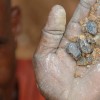
Oil money in Gabon and Sierra Leone: from mirage to reality?

La transparence des revenus au Gabon et en Sierra Leone: du mirage à la réalité?
Par Lavina Banduah, Directrice exécutive de Transparency Sierra Leone et Marc Ona, Coordinateur de Publiez ce que vous payez Gabon. Beaucoup des pays les plus pauvres de la planète de par le revenu par habitant sont en fait parmi les plus riches en termes de ressources naturelles. Le problème est que cette richesse ne profite […]
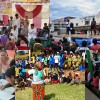
5 ways to meet an anti-corruption Millennium Development Goal
This week the United Nations is bringing experts and world leaders to Indonesia to debate development priorities beyond 2015, when the Millennium Development Goals expire. Good governance tops the list of what to add to the current eight targets. We want to make certain that good governance and anti-corruption form part of the promises and […]
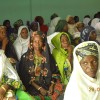
Why do women report corruption less than men?
As today is International Women’s Day, I looked at the complaints our help centres around the world received last year to see if there is any gender difference in reporting corruption. Unfortunately, the numbers suggest there is a significant difference: in many parts of the world, women are less likely to report an incident of […]
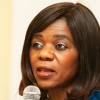
Women’s day: South Africa’s corruption crusader
To ring in International Women’s Day on 8 March, Transparency International is featuring woman corruption fighters around the world. Thuli Madonsela is one of these women. She speaks in whispering tones and is always immaculately dressed. When she walks into a room and begins speaking, people sit up and listen. Fearless and resolute, this is […]
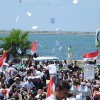
Women’s Day: Seeking justice and transparency in Egypt
To ring in International Women’s Day on 8 March, Transparency International is featuring woman corruption fighters around the world. Evronia Azer is one of these women. The coastal city of Alexandria has no shortage of everyday heroes. The activists that do not grace newspaper headlines but just go about their insistent struggle for justice on […]

“Corruption is a problem of standards”
An interview with Executive Director Galia Sagi and Project Coordinator Ido Feder about the working methods of Transparency International Israel, opportunities and challenges in the fight against corruption. Transparency International Israel was founded in 1999. Was there a specific reason? Galia Sagi: Transparency Israel was founded by Prof. Dov Izraeli. Lecturing at the Faculty of […]
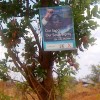
Zimbabwe: Women make easy prey for corrupt politicians
Politicians in Zimbabwe are taking advantage of the fact women face existing legal limitations. Research shows that women, who often have lower incomes, have limited access to basic public services because they are less likely to pay bribes to get the services. This makes it difficult for them to acquire registration documents like a mining […]
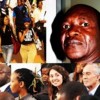
A year of corruption-busting in South Africa
Exactly a year ago, in the clinical hall which once housed an infamous women’s prison, South Africa’s Corruption Watch was born. The imposing space was packed to capacity with political heavyweights, anti-apartheid luminaries, journalists and human rights activists who had come to welcome the launch of the first civil society watchdog of its kind in […]
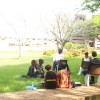
Les jeunes leaders Ouest Africains s’unissent pour lutter contre la corruption
En Afrique sub-saharienne 60% de la population a moins de 35 ans, faisant de l’Afrique le continent le plus jeune. Les jeunes africains sont la clé pour le changement, très bientôt ils seront les acteurs clés et les premiers défenseurs de la transformation sociale. En décembre, 38 jeunes leaders de six pays différents d’Afrique […]
- State Capture in South Africa 14 February 2017
-
 What’s next for Ukraine?
16 December 2016
What’s next for Ukraine?
16 December 2016
-
 Cleaning up sport: conflicts of interest at the top
9 December 2016
Cleaning up sport: conflicts of interest at the top
9 December 2016
-
 OGP: France must do more to tackle corruption
9 December 2016
OGP: France must do more to tackle corruption
9 December 2016
-
 Pharma companies in Slovakia: Uncovering conflicts of interest
9 December 2016
Pharma companies in Slovakia: Uncovering conflicts of interest
9 December 2016
-
Nokubonga Ndima: Young people can make a change for a better future...
-
Benjamin M: Very good article! Congrats!...
-
arun kottur: In India sports minister was involved decades are ...
-
Ekonomi: Very beneficial article. Thank you very much. htt...
-
ksweeney1: I do not agree that https://apex.aero/2016/09/22/g...
Search
Categories
Latest news from Transparency International
No items, feed is empty.

 Connect with us on Facebook
Connect with us on Facebook Follow us on Twitter
Follow us on Twitter